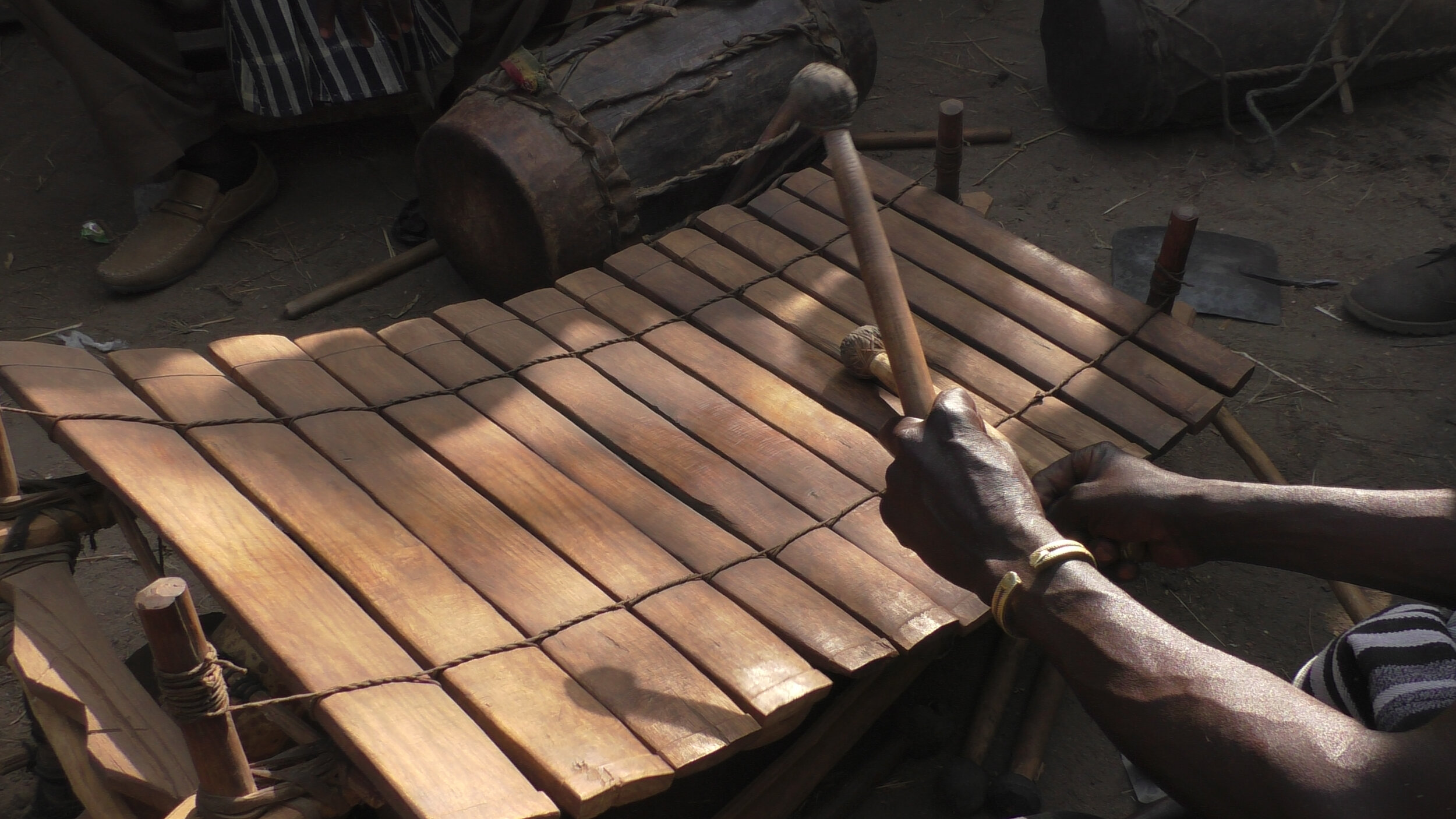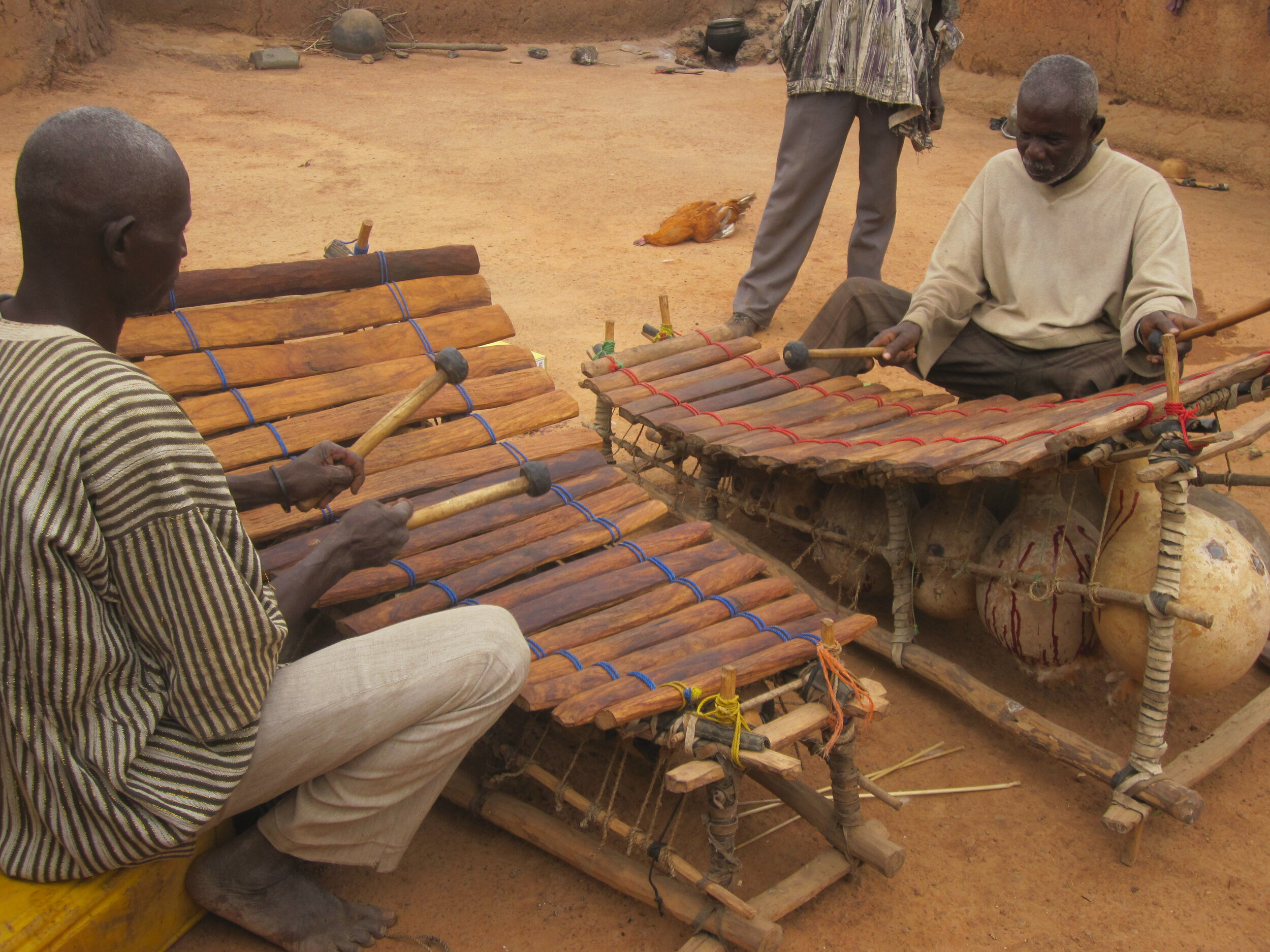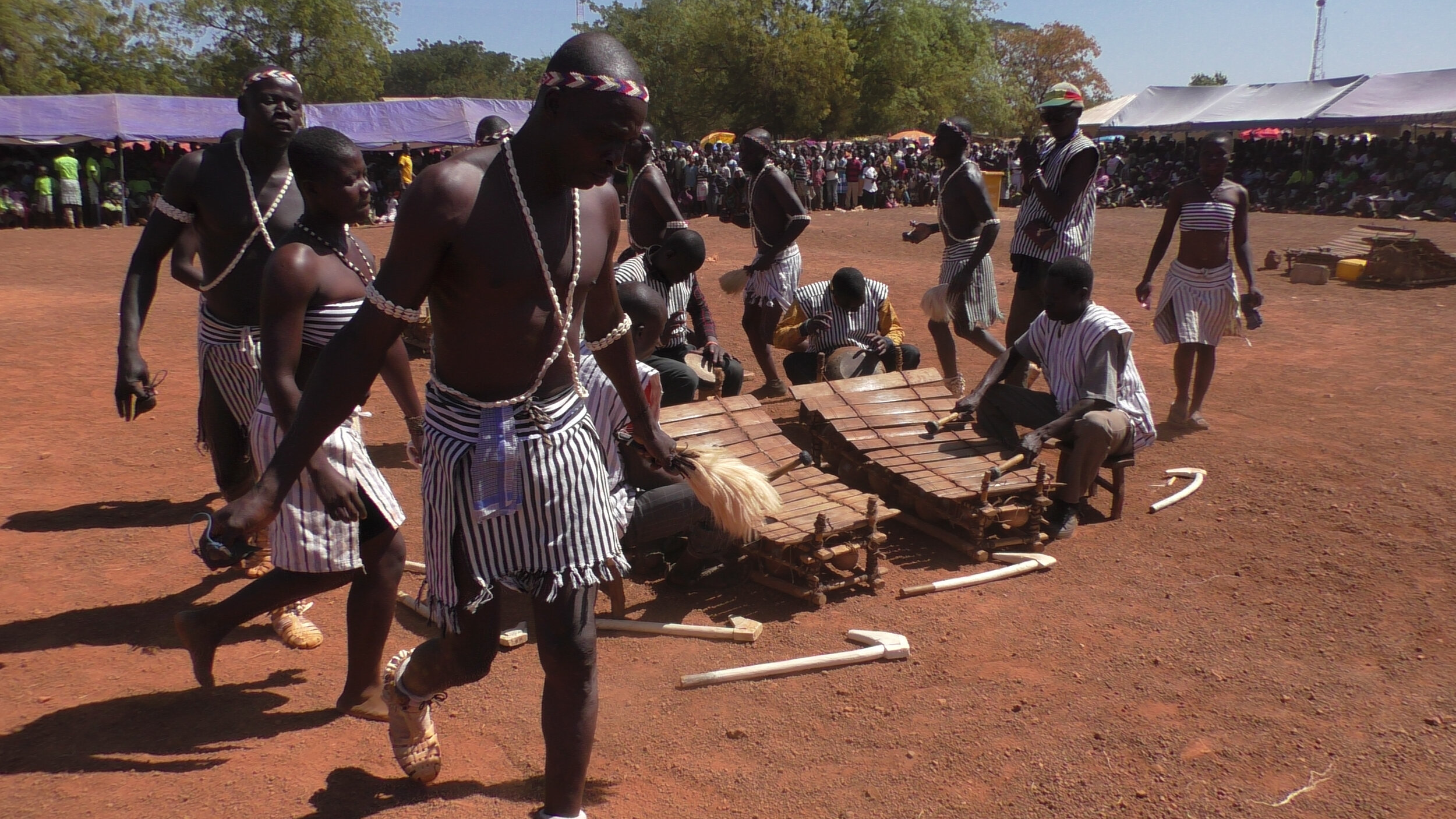The gyil refers to several xylophones of Ghana, Southwest Burkina Faso and Northeast Cote d'Ivoire. While similar in build and function, there are many variations to this instrument.
The Kogyil
The Kogyil is the primary xylophone of the Birifor & Lobi ethnic groups. It is a pentatonic instrument with the lowest note being G2 and the highest D5. In some villages the kogyil is tuned with the lowest being A1, and extending up to E5. Birifor and Lobi cultures use kogyil for funeral ceremonies, which are multi day community events.
The Bogyil
The bogyil is similar to the kogyil, played by both Birifor and Lobi ethnicities. Unlike the kogyil, the bogyil is played in pairs, with a lead and support player. These instruments are mostly used for Bagr Religious Ceremonies, also known as Bori Festivals. At funerals the instrument is performed to ease tension while encouraging dancing. The bogyil uses a tetratonic scale closely based on a Bb minor pentatonic scale, with keys 5 and 10 being skipped.
Dega Gyil
The Degaar/Dega gyil is the primary instrument of the Dagara people. This instrument is used for Dagara funerals, and the Dagara recreational music called bewaa. Like the kogyil, the degaar/dega gyil is based on a G pentatonic scale with the addition of four keys. Of these four keys three extend the range of the instrument from G2 to B1, with the fourth key untuned. This untuned key is struck with the wooden shaft of the gyil mallet, creating a “bell” pattern called kpagru.
The Logyil
The logyil is a secondary instrument of the Dagara people, and primary instrument of the Losaale people. In Dagara culture the logyil is used to announce the start of the funeral, and the gender of the deceased. The Losaale people use logyil for funerals, in addition to a unique style of bewaa and bagr ceremonies. These instruments are very similar to the bogyil, however produce a deeper & more subdued timbre.




